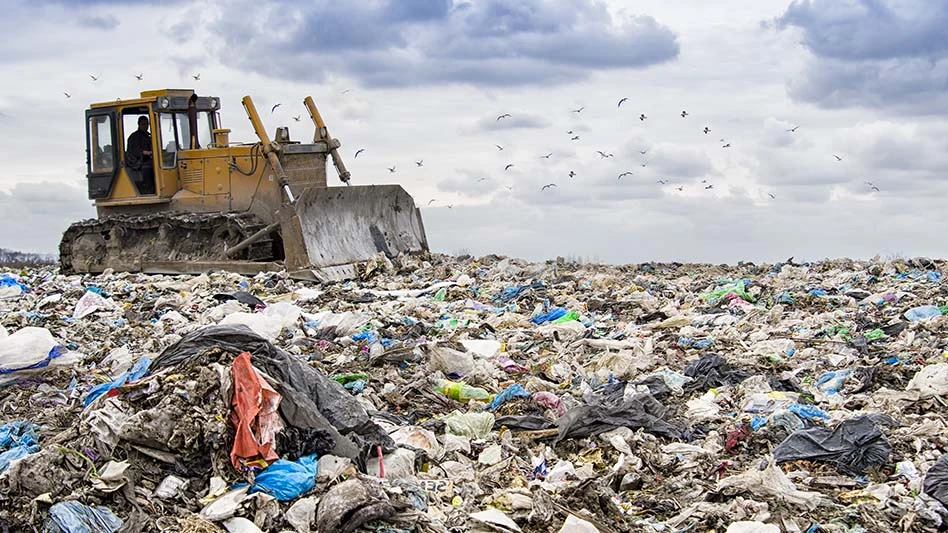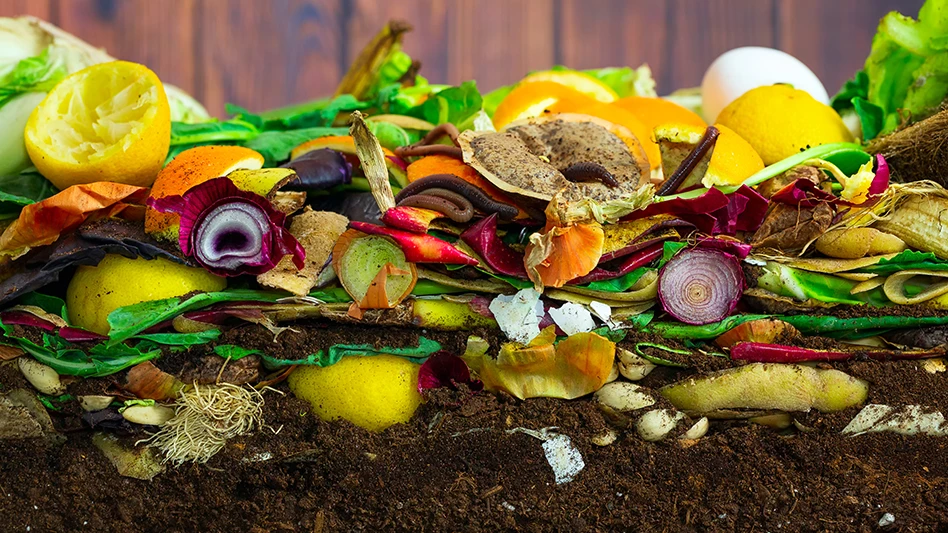
Photo courtesy of the United States Environmental Protection Agency
The U.S. Environmental Protection Agency (EPA) has issued a violation notice to Chiquita Canyon LLC (CCL), a Southern California landfill operated by Texas-based Waste Connections Inc., regarding New Source Performance Standards and National Emission Standards for Hazardous Air Pollutants for municipal solid waste (MSW) landfills.
The violations, tied to the federal Clean Air Act, could affect the company’s ability to retain its Title V landfill permit, which is tied to measured emissions.
The Chiquita Canyon Landfill is a 639-acre MSW landfill located in the northern section of Los Angeles County and has been accepting MSW since 1972.
In a June 4 notice, the EPA describes typical landfill procedures, including deployment of daily cover, handling of liquids (leachate) and the pumping of gases and liquids and follow-up treatment “to avoid environmental damage and harm to public health."
“CCL is required to operate and maintain both landfill gas capture and control systems and leachate capture and control systems by various federal, state and local regulations and permits," the EPA says.
According to the agency, in the past two years, conditions at the landfill have raised concerns about the operators’ ability to keep leachate and emissions in check.
“Since approximately May 2022, the landfill has been experiencing a significant subsurface oxidation event that has grown in size and impact,” the EPA writes in an early-June update. “An oxidation event is a subsurface reaction at a landfill that typically occurs when oxygen intrudes below the landfill cover and results in extreme temperature increases, excessive leachate production, and a change in composition of the landfill gas. During such reactions, the concentrations of carbon monoxide, hydrogen sulfide and volatile organics are typically increased in the landfill gas, while methane is decreased."
Even though Chiquita Canyon Landfill has a methane gas collection system, it may not be sufficiently helpful regarding the new conditions, according to the EPA.
“The subsurface reaction impeded the ability of the gas collection and control system to operate effectively, resulting in the increase in odors,” it continues. “Residents of the communities surrounding the landfill reported almost 6,800 odor complaints in 2023. Further, the reaction has resulted in increased leachate production from approximately 150,000 gallons per week in January 2022 to over 1 million gallons per week in December 2023.”
In an early-June update, the EPA writes: “EPA found that CCL failed to adequately operate the landfill’s active collection system at gas collection wells in applicable areas, failed to operate air pollution and control equipment in a manner consistent with good air pollution control practices, failed to correct landfill gas temperatures inside and outside the reaction area and failed to adequately monitor landfill gas temperatures. The Clean Air Act (CAA) authorizes EPA to issue an order requiring compliance with the requirements of the CAA, issue an administrative penalty order or commence a civil action seeking an injunction and/or civil penalty.”
Latest from Waste Today
- Composting pilot comes to Prairie Village, Kansas
- Republic Services says Teamsters mediation to resume Tuesday
- Reworld partners with Mystic Aquarium
- Michigan county issues notice to waste hauler over pickup delays
- OC Waste & Recycling wins 4 national awards
- AMCS appoints general manager for North America
- Philadelphia strike ends as city workers reach tentative deal
- Cards acquires National Waste of Tulsa, Oklahoma





